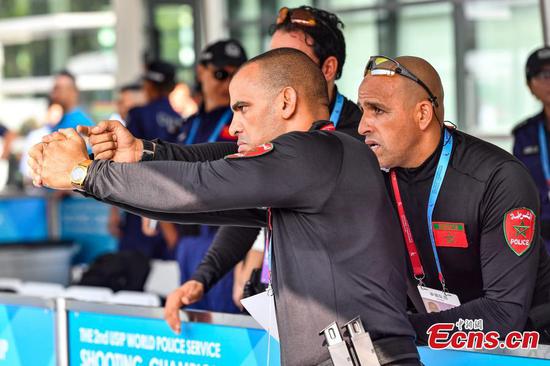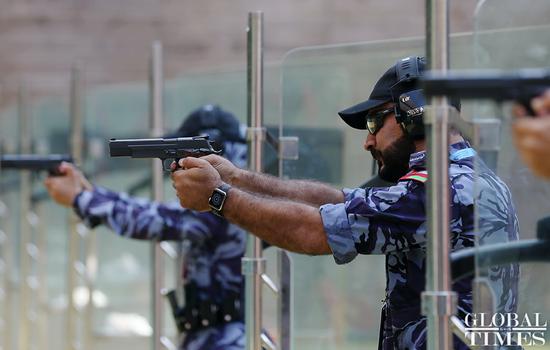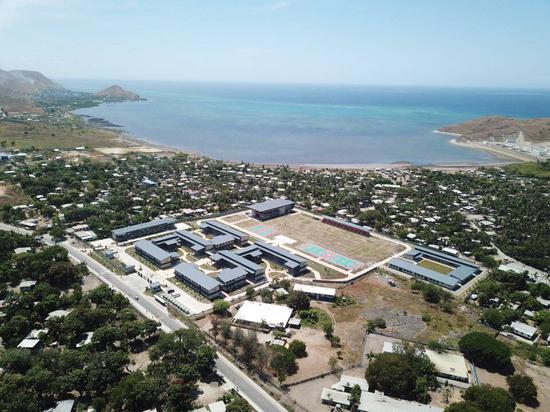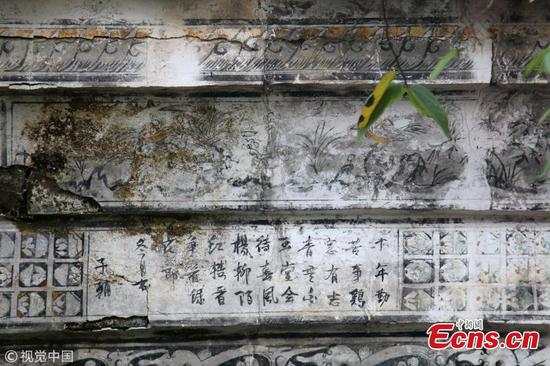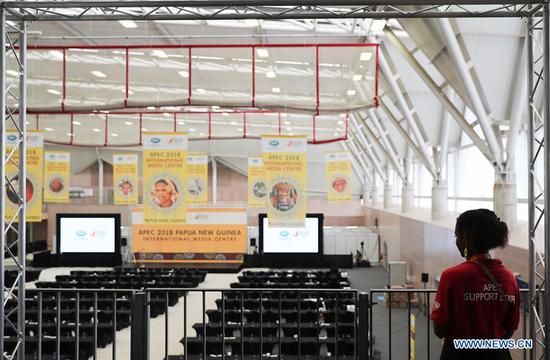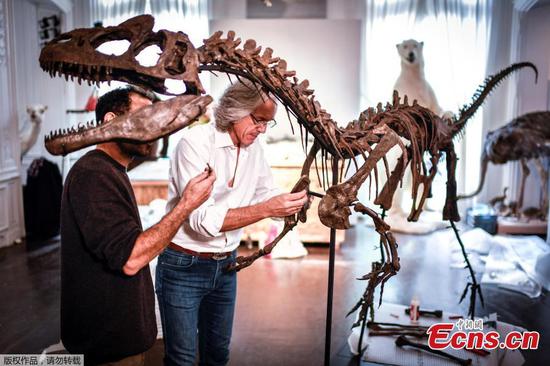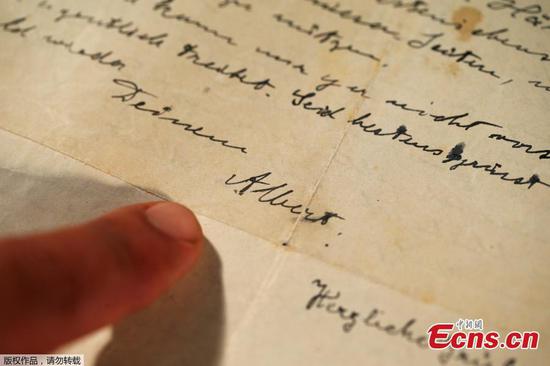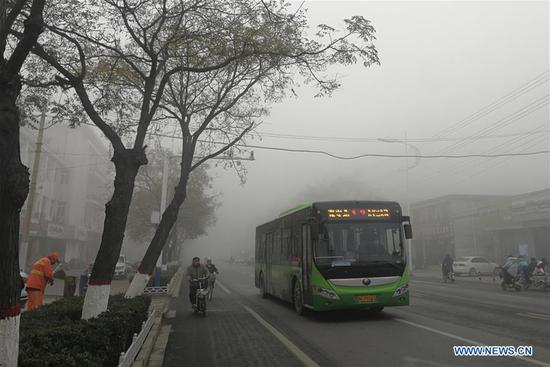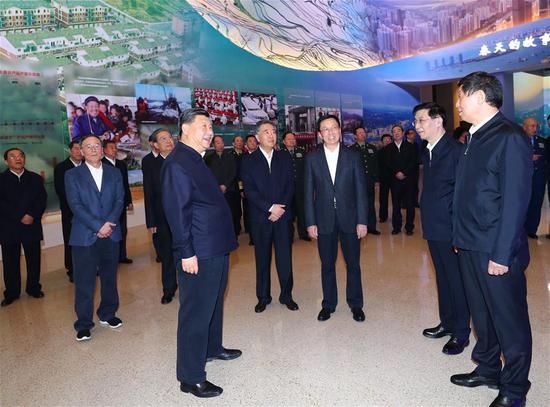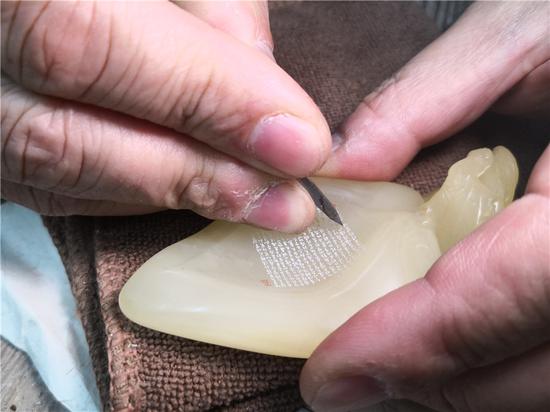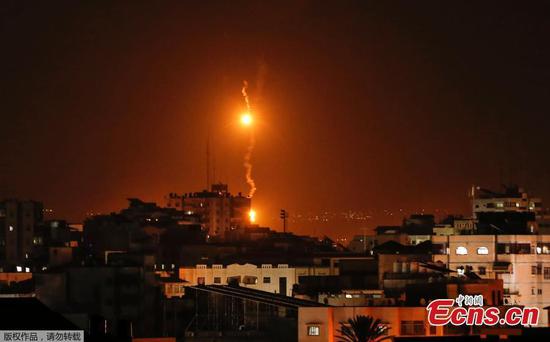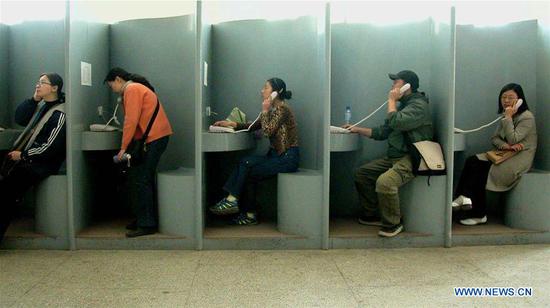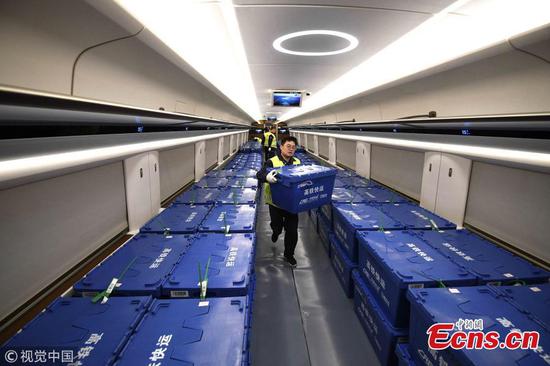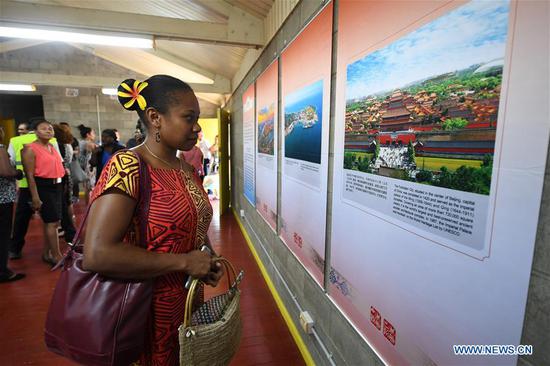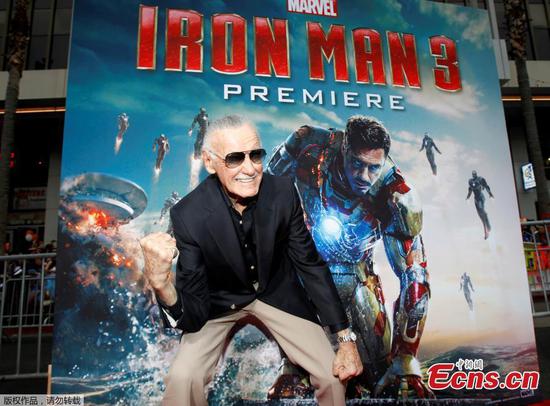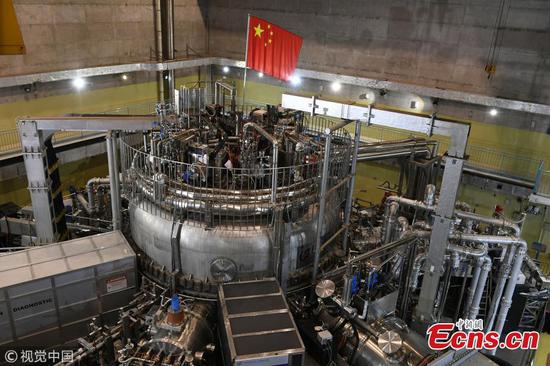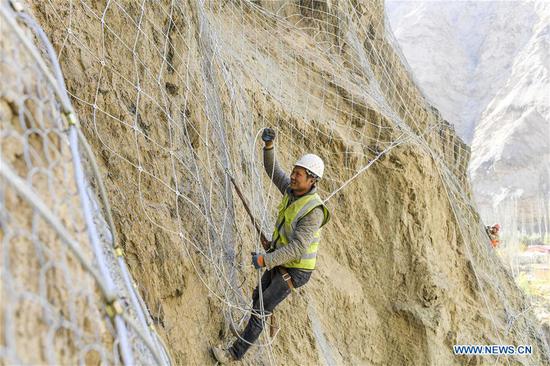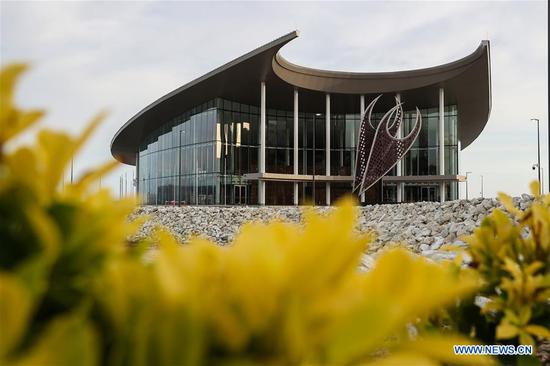A new round of political battle just began on Wednesday as British Prime Minister Theresa May is working very hard to sell to her cabinet members the new draft Brexit agreement between London and Brussels.
The draft divorce deal, also known as the withdrawal agreement, represented a technical breakthrough after weeks of tense negotiations between the United Kingdom and the European Union (EU) on how Britain can leave the regional bloc on March 29 next year.
The prime minister, who vowed to deliver Brexit in accordance with the referendum outcome two years ago, is facing a crunch cabinet meeting later as she tries to win colleagues' support for the agreement amid calls to reject the deal from both senior Brexiteers and some Remain supporters.
The draft agreement needs the support of the divisive cabinet and approval of the British parliament. It also requires a green light from all the 27 remaining EU member states.
Beginning Tuesday night, May called the cabinet members into 10 Downing Street one by one to get their first look at the agreement amid speculation about further resignations. The briefing is continuing on Wednesday morning before ministers are to gather in Downing Street at 14:00 GMT.
Hard Brexiteers reacted negatively to the proposed deal and indicated that they intended to vote against it if it came to parliament.
"I hope cabinet will block it, or if not, parliament will block it," said Jacob Rees-Mogg, a member of the parliament and chairman of the European Research Group.
Meanwhile, Boris Johnson, who resigned as foreign secretary, said that he believed the deal was "vassal state stuff." He said that the UK would be bound by laws over which it had no say, which was "utterly unacceptable."
As British ministers are sitting down for the cabinet meeting, ambassadors from the 27 EU member states will meet in Brussels to discuss the possibility of organizing an emergency summit later this month, earmarked for Nov. 25, to sign off on the withdrawal agreement.
If the agreement is ratified by both sides, Britain will enter a 20-month transition period after it leaves the EU next March.
Key elements of the draft agreement began to leak on Tuesday night. Britain is believed to have agreed that an independent arbitration committee will judge when a UK-wide customs backstop can be terminated. It will comprise an equal number of British and EU representatives plus an independent element.
The so-called "UK-wide backstop" would mean the UK remaining in an EU customs union for an undefined period up and until the point that it is agreed it is no longer necessary. It is deemed necessary to avoid a hard border in the Island of Ireland if London and Brussels cannot reach a free trade agreement by the end of the Brexit transition period in 2020.
For May, who has been long under intense pressure at home over Brexit, to negotiate with the EU is an uphill struggle. At the same time, to win support from her fellow cabinet members is not easier, either.
As a fierce debate is under way in Britain, the EU also struck a note of caution over whether the blueprint would ultimately win cabinet support in the UK.
The European Commission has just published an extensive series of contingency plans and draft legislative measures to prepare for a no-deal Brexit and the abrupt UK departure from the regional bloc at the end of next March. European officials stressed the importance of no-deal planning by national authorities and business.











